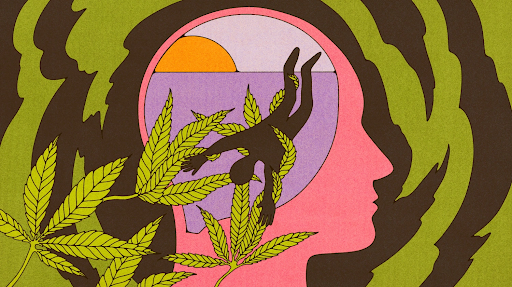You’re probably already aware of THC’s reputation for inducing relaxation, but have you ever wondered about the science behind this effect?
As you navigate the intricate world of neurochemistry, you’ll come across the endocannabinoid system, a crucial player in mood regulation.
Keep reading and let’s uncover the mysteries of THC and its potential role in promoting serenity.
Understanding THC and Its Properties
You’ve likely heard of THC in the context of marijuana, but it’s more than just a recreational drug.
THC, short for delta-9-tetrahydrocannabinol, interacts with your body’s cannabinoid receptors, producing effects ranging from relaxation to altered senses.
It’s important to note that while THC can induce feelings of euphoria, it can also trigger anxiety and paranoia in some individuals. Understanding the properties of THC is fundamental in comprehending how it may play a role in stress and anxiety reduction.
The key lies in the dosage and individual responses, which we’ll explore further in subsequent sections.
The Endocannabinoid System Explained
Endocannabinoid system is a complex cell-signaling system in your body. This system, always active in your body, plays a crucial role in maintaining bodily functions like mood, memory, appetite, sleep, and much more.
It’s composed of endocannabinoids, receptors that these endocannabinoids bind to, and enzymes that break them down. The two key endocannabinoids are anandamide and 2-arachidonoylglycerol (2-AG).
They bind to two types of receptors: CB1, mainly present in your brain, and CB2, found throughout your body. The enzymes FAAH and MAGL break down anandamide and 2-AG, respectively.
Thus, this system helps regulate your body’s balance or homeostasis.
How THC Interacts With Our Bodies
THC engages with the endocannabinoid system. The interaction is complex and multifaceted, but here’s a simplified breakdown:
- Once consumed, THC mimics the body’s natural endocannabinoids. This is done by binding to cannabinoid receptors, mainly CB1 and CB2.
- After latching onto these receptors, THC triggers a series of responses in your body. You may feel relaxed, euphoric or hungry as a result.
- Over time, regular THC consumption can affect the balance of your endocannabinoid system, potentially leading to tolerance or withdrawal symptoms.
THC’s Role in Anxiety Reduction
When you ingest THC, it binds to cannabinoid receptors in your brain, helping to regulate your mood. It’s this interaction that can lead to feelings of relaxation and calm, effectively reducing anxiety levels.
The key here is dosage. Low to moderate amounts of THC can often provide anxiety relief, while higher doses might actually trigger anxiety. It’s a fine balance that can vary from person to person, so it’s crucial to start with small amounts and adjust as needed.
Everyone’s body and brain chemistry are unique, so what works for one person might not work for another. Don’t hesitate to seek professional advice if needed for the right dosage of THC oils, vape pens like Ghost THC, or other similar products.
Stress Alleviation Through THC
Battling stress can often feel like an uphill struggle, but THC might just be the ally you need in this fight. Here’s how it can help you:
- Regulates emotional response: THC interacts with the body’s endocannabinoid system, which plays a crucial role in stress regulation. It can help to stabilize your emotional responses, making stress more manageable.
- Promotes relaxation: THC has a sedative effect that can create feelings of relaxation and calm. This can be particularly beneficial in times of high stress.
- Improves sleep: Chronic stress often disrupts sleep. THC can enhance the quality of your sleep, which is essential for stress recovery.
Scientific Studies on THC and Mental Health
Researchers have conducted studies exploring the effects of THC on mental health, yielding some significant findings. They have discovered that THC, the psychoactive component in cannabis, appears to relieve symptoms of stress and anxiety for some people.
If you’re wondering how it works, this brings us back to THC’s interaction with the endocannabinoid system in your brain.
However, it’s important to remember that responses can vary based on individual factors. The science is still emerging, and though these findings are promising, more research is needed to fully understand THC’s impact on mental health.
Potential Risks and Benefits of THC
THC may have both the potential risks and benefits associated with its use.
First off, you might experience short-term memory problems, impaired motor skills, and increased heart rate, which are some common side effects of THC. It’s also important to remember that consuming in high doses can lead to paranoia or anxiety.
On the brighter side, THC has shown potential benefits such as reducing nausea, stimulating appetite, and offering relief from pain and inflammation.
Moreover, as the main component of cannabis, THC can help reduce stress and anxiety, offering a feeling of calmness and relaxation.
As always, consult with a healthcare professional before starting any new health regimen.





